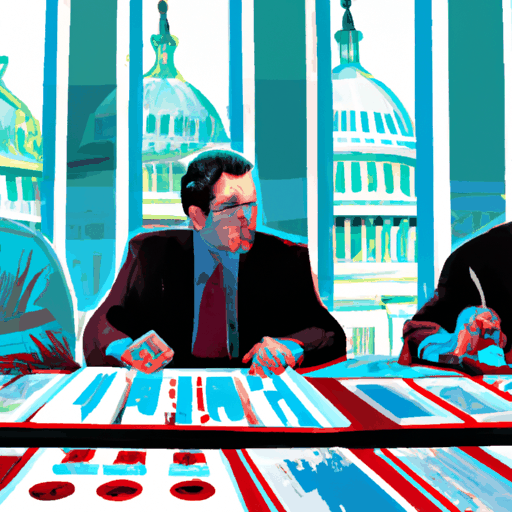
Federal Reserve Official Advocates For Crypto Investment Among Staff
By: Eva Baxter
In a significant development for the cryptocurrency world, Federal Reserve Vice Chair for Supervision, Michelle Bowman, has suggested that the central bank should loosen its stance on cryptocurrency holdings by allowing its staff to hold a minimal amount of digital assets. This marks a potential shift in the Federal Reserve's approach towards digital currencies and their integration into financial systems.
Bowman's remarks were made during a blockchain event held in Wyoming, emphasizing the need for central bank staff to gain firsthand experience and understanding of cryptocurrencies by holding small amounts. She argued that this would enable staff to better comprehend the underlying technologies and functionalities of digital assets, which are critical for future regulatory frameworks. The Vice Chair's comments are indicative of the evolving outlook among regulatory officials who are beginning to see value in direct engagement with blockchain technologies.
According to Bowman, having a working knowledge of digital currencies could facilitate more informed decision-making and supervision as the Federal Reserve prepares to roll out a comprehensive framework for overseeing digital asset issuers. This initiative aligns with the broader recognition that cryptocurrencies and blockchain technology are becoming increasingly integral to the financial landscape, leading to a pressing need for regulators to understand these technologies intimately.
The Vice Chair's proposition comes amid ongoing debates on how central banks and regulators should respond to the growing popularity of cryptocurrencies. While some criticisms remain about the volatility and risks associated with digital currencies, Bowman's proposal could pave the way for more flexible policies and regulatory adjustments that acknowledge the rapid changes in the financial technology sector. As the Federal Reserve considers these changes, the proposal to allow staff to hold cryptocurrencies, even in small amounts, could signify a major milestone in crypto adoption and regulatory adaptation.
Ultimately, this move, if approved, could help demystify cryptocurrencies for regulators and facilitate the creation of informed policies that balance innovation with the necessary risk safeguards. The discussions around this proposal highlight the ongoing evolution in the central bank's engagement with digital currencies, reflecting a broader trend of gradual acceptance and incorporation of blockchain technology within traditional financial sectors.



